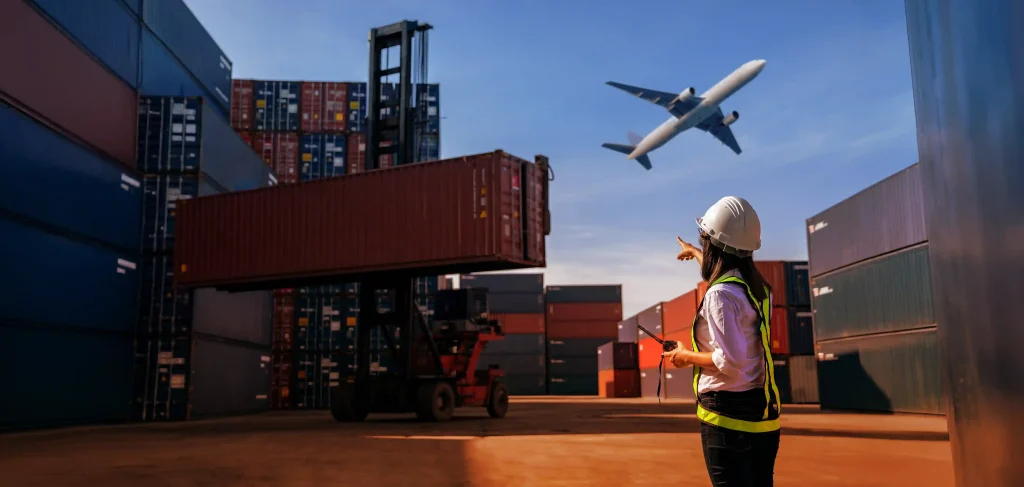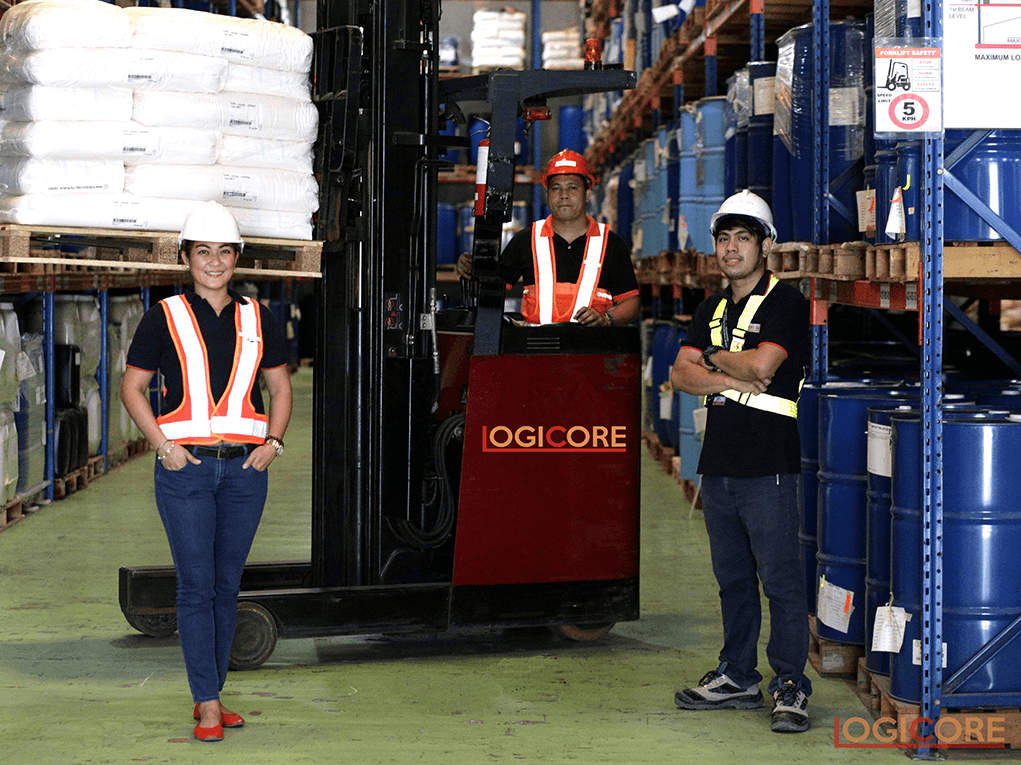Air freight is essential to global trade and logistics, offering a fast, reliable, and secure way to transport goods over long distances. Compared to sea or land transport, it greatly reduces delivery times, making it the best choice for urgent shipments like perishable goods, medical supplies, and high-value items.
Learn everything about air freight forwarding including its meaning, processes, and key benefits. Understand how air cargo services can streamline logistics and boost your business efficiency.
Air Freight Meaning
Air freight refers to the transportation of goods and cargo via aircraft, providing a fast and reliable means of moving products from one place to another. As part of freight forwarding service, airfreight encompasses both domestic and even international shipping, allowing businesses to reach inter-island and global markets on time.

5 Common Types of Air Cargo Shipments
- General Cargo: These are the goods or products that can be safely shipped by air without needing special handling or complex storage conditions.
- Special Cargo: Includes high-value items such as pharmaceuticals, electronics, and auctioned artwork that need extra care.
- Express Shipment: Urgent shipments that will be prioritized for loading onto the quickest available aircraft. These are the items that need to be delivered within 24-48 hours, even internationally.
- Perishable Goods: Items with a short shelf life, like fresh produce, and medications. These cargo shipments need careful handling due to their sensitivity to temperature, humidity, and transport conditions.
- Heavy Cargo: Includes oversized or bulky items like industrial machinery, vehicles, and large equipment that exceed the standard weight and size limit. These items require specialized aircraft so the freight forwarder will be equipped with heavy-duty loading gear.
Key Advantage of Air Freight Shipments
Air freight involves the use of commercial airlines or dedicated cargo carriers to deliver shipments, which can range from small parcels to large pallets. As previously mentioned, this mode of transport is particularly beneficial for time-sensitive deliveries. Air freight offers the advantage of reducing transit times compared to other shipping methods like sea freight, making it an essential component in the logistics and supply chain industry.
Tips on Choosing The Right Freight Forwarder
The demand for logistics solutions rises when businesses expand their freight service coverage, making it more challenging to find the right freight forwarder. This applies whether you run a business or manage shipments from one place to another. Learn the key factors to consider when choosing the right freight forwarder for your business to ensure smooth and efficient logistics operations.
Air Freight Shipping Process: How Air Freight Works
Step 1: Cargo Preparation
The journey begins with the shipper preparing the cargo for transport. This includes packaging and labeling items according to airline regulations, ensuring they are secure and ready for handling. Once prepared, the goods are taken to an airport facility where they undergo customs clearance.
Step 2: Cargo Loading
Next, the cargo is loaded onto an aircraft. Air freight carriers utilize specialized containers and pallets designed to optimize space and protect shipments during transit.
Step 3: Cargo Transportation
After loading, the aircraft takes off for its destination, often covering thousands of miles in just a few hours.
Step 4: Cargo Arrival
Upon arrival at the destination airport, cargo must again clear customs before it can be picked up by recipients or forwarded to their final destinations. This involves documentation checks and potential duties or taxes based on local regulations.
Understanding the air freight process is crucial for businesses looking to leverage this fast transportation method effectively. By navigating these steps, companies can enhance their supply chain operations and meet customer demands in an increasingly competitive market.
Partner with a Reliable Freight Forwarding Service Provider
We leverage a variety of transport options to ensure that your business’ freight forwarding requirements are met with satisfaction.
Benefits of Air Freight for Businesses
Reliability
Airlines operate on strict schedules, which means that businesses can depend on timely deliveries. This consistency helps them maintain inventory levels and meet consumer expectations without delay.
Enhanced Securities for Shipments
Goods transported by air are typically subject to rigorous safety protocols and monitoring systems, reducing the risk of theft or damage during transit.
Long-Term Cost Savings
Although air freight may come with a higher cost than sea or road transport, it can lead to overall savings by minimizing inventory holding costs and improving cash flow through faster turnover rates. For many businesses, these benefits make air cargo logistics an essential component of their supply chain strategy.
Conclusion
Air freight is proven to be a fast, reliable, and secure transport solution that supports efficient shipment of goods across domestic and international markets. With various cargo options and streamlined shipping processes, air freight serves as the key ingredient for companies in meeting urgent customer demands. While it may not be as cost-effective as the other shipping methods, its reliability, and security make it a valuable option for businesses looking to optimize their freight forwarding process and improve customer satisfaction.
Looking for a reliable logistics provider to streamline your supply chain?
Elevate your business and partner with Logicore for fast, secure, and cost-effective shipping solutions.
Inquire now






